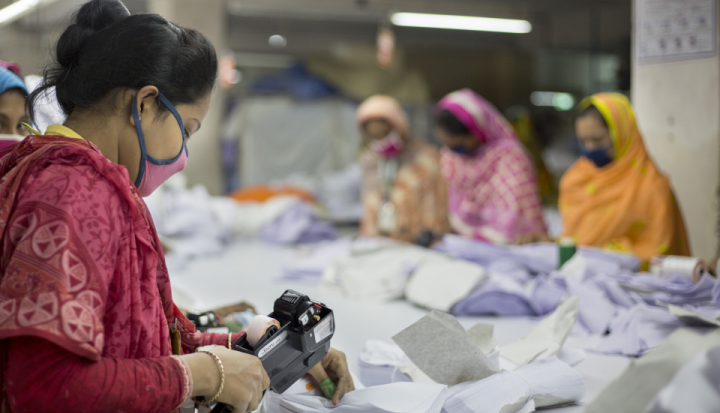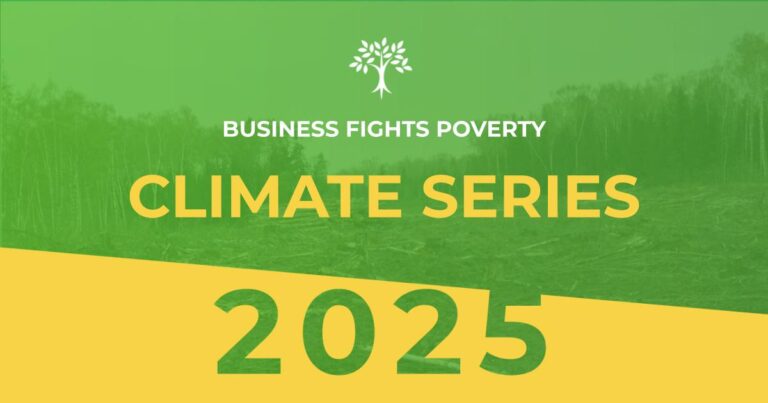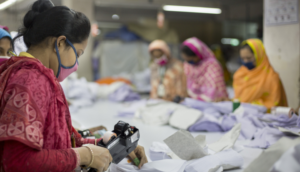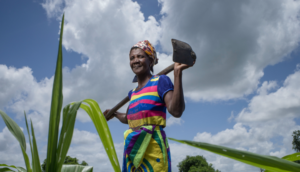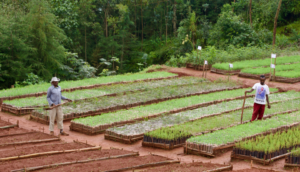The human toll of climate impacts is not the same for men and women. It impacts women in unique ways, amplifying existing inequalities and threatening their health, well-being, and economic resilience. As world leaders, researchers, activists, and advocates prepare to gather for COP30, it’s time to recognize and respond to the impacts of climate risks which present specific challenges for women workers and their communities, especially in climate-vulnerable countries.
In Bangladesh, migration to Dhaka due to cyclones and flooding in coastal areas is exposing women to increased violence, risks to their housing, and a lack of social protections. In India, extreme heat is contributing to health issues for women workers and leading to chronic fatigue and burnout as they balance the formal workplace with domestic and caregiving duties. In Cambodia and Vietnam, extreme weather and related financial and caregiving stress on families is causing a rise in domestic violence.
Corporate action on climate has focused largely on mitigation strategies. While mitigation is critical, it does nothing to address the impacts of climate risks that women workers and their communities are suffering now. It also misses an opportunity to invest in the women and women-led organizations that are on the front lines of the fight against a rapidly changing world.
Climate risks disproportionately impact the health, well-being and economic future of women and women workers.
Without concerted investment in adaptation and resilience, extreme weather events and other climate risks will reverse hard-fought gains in women’s health, well-being, and their position in the formal workforce. These are already disrupting women’s access to essential health care, exposing them to heightened levels of violence, increasing their burden of unpaid care work, and reducing their economic opportunities as the economy transitions to automation and green technologies.
For example, extreme heat is increasingly linked with adverse reproductive and maternal health outcomes for women workers, including hormonal imbalances, fertility problems and a 27 percent higher risk of pregnancy and childbirth complications.
These impacts are felt most severely by women in climate-vulnerable countries, and those who are especially at risk due to their age, race, caste, disability, migration status, poverty, or other characteristics.
Women are not just uniquely and disproportionately impacted by climate risks, they also have the knowledge, experience, and know-how essential in helping communities respond and adapt to its impacts.
This is evident in women-led organizations and women’s funds, which are on the frontlines of climate action – driving mitigation and adaptation efforts, building local solutions, and strengthening communities’ social and economic resilience to climate impacts.
Operating at the local and regional level, women-led organizations and women’s funds are uniquely knowledgeable and strategically positioned to support climate adaptation and resilience efforts, and to address the differentiated impacts of the climate crisis on workers, women, and marginalized groups.
Corporate and philanthropic investments to address climate risks can prioritize practical and innovative approaches to supporting climate resilience in workplaces and communities.
A recent report from the Resilience Fund for Women in Global Value Chains explores new ways to invest at the intersection of women’s health and well-being, climate resilience, and corporate supply chains. The Fund is a unique entity, co-created by the Universal Access Project and NGO partners with several brands. Now with 10 corporate investors, it invests pooled, flexible funding and partners with women-led organizations in South and Southeast Asia to advance women’s health, safety and economic resilience.
The report presents evidence, including from the Fund’s grantee partners, on the value of investing in supply chain communities around the workplace; providing flexible, not just programmatic funding to organizations; and pooling funding to de-risk investments and expand the reach of grants.
Community investments in resilience go hand in hand with addressing the health needs of women – and men – in the workplace as the dangers of extreme weather increase. The steering committee of the Universal Access Project’s Accountability Platform recently launched a new worker health risk assessment tool for companies to take practical steps on health at the workplace.
There is no such thing as responsible or effective climate action if it does not also address the impacts on women or recognize the connection between workplace and community across issues like women’s health, violence, migration, forced labor, among others.
The urgency and severity of the climate crisis, and its disproportionate impact on women, demands new, more flexible and ambitious funding approaches.
This article is part of the Business Fights Poverty Climate Series with Fundação Dom Cabral (FDC) taking place during COP30 Climate Summit in Belém, Brazil.
